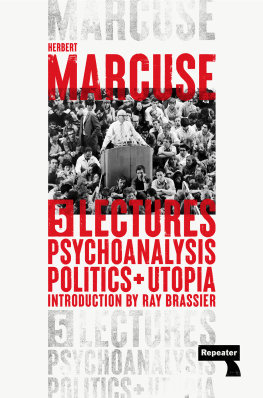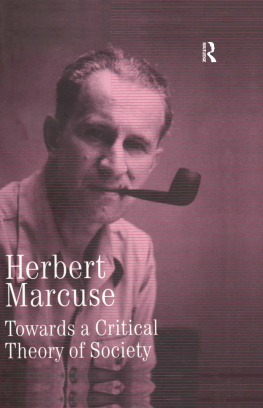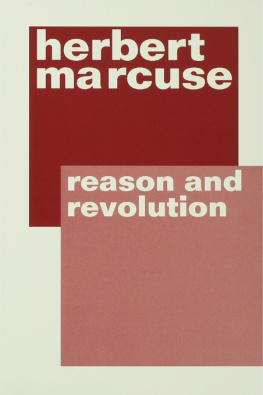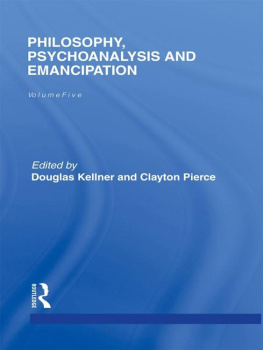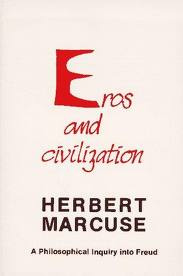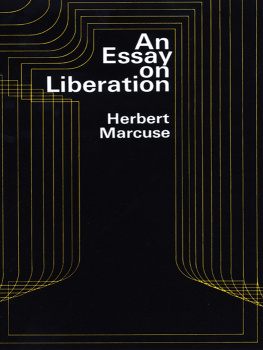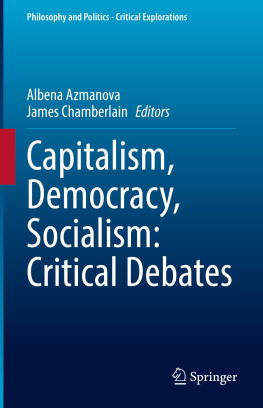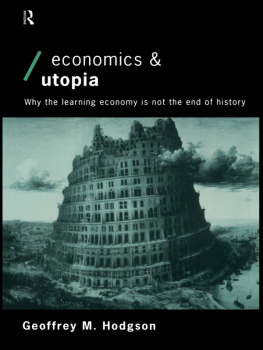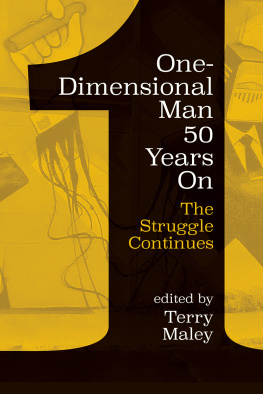
Against the lies and mystifications of a cynical realism, Marcuse insists on the real basis of utopia an insistence we need today more than ever.
JODI DEAN, HOBART AND WILLIAM DEAN COLLEGE, AUTHOR OF THE COMMUNIST HORIZON
Marcuses synthesis of Marx and Freud explains the interaction of the social and psychic forces that have blocked the revolution Marx anticipated. His theory gives insight into the role of the irrational in the historical process. We need that insight now more than ever. But Marcuse also shows a path to a concrete utopia made possible by the achievements of the existing society. The essays in this volume are once again timely as rising social conflict on the right and the left challenges conventional thinking.
ANDREW FEENBERG, SIMON FRASER UNIVERSITY, AUTHOR OF THE PHILOSOPHY OF PRAXIS:MARX, LUKCS AND THE FRANKFURT SCHOOL
Psychoanalysis, Politics, and Utopia presents important articles that illuminate Marcuses appropriation and use of Freud and psychoanalysis while indicating their relevance to politics and utopian concepts of liberation and revolution. These texts indicate how and why Marcuse was a key influence on the New Left and radical politics during the last two decades of his life in the 1960s and 1970s, and his continuing relevance for radical theory and politics today.
DOUGLAS KELLNER, UCLA, AUTHOR OF HERBERT MARCUSE AND THE CRISIS OF MARXISM


Published by Repeater Books
An imprint of Watkins Media Ltd
Unit 11 Shepperton House
89-93 Shepperton Road
London
N1 3DF
United Kingdom
www.repeaterbooks.com
A Repeater Books paperback original 2022
Distributed in the United States by Random House, Inc., New York.
Copyright 1970 by Herbert Marcuse
Translations from German Copyright 1970 by Beacon Press
The German texts are copyright by Europische Verlagsanstalt, Frankfurt am Main, and by Verlag
Peter von Maikowski, Berlin
Introduction copyright Ray Brassier 2022
ISBN: 9781914420405
Ebook ISBN: 9781914420412
All rights reserved. No part of this publication may be reproduced, stored in a retrieval system, or transmitted, in any form or by any means, electronic, mechanical, photocopying, recording or otherwise, without the prior permission of the publishers.
This book is sold subject to the condition that it shall not, by way of trade or otherwise, be lent, re-sold, hired out or otherwise circulated without the publishers prior consent in any form of binding or cover other than that in which it is published and without a similar condition including this condition being imposed on the subsequent purchaser.
Printed and bound in the UK by TJ Books

CONTENTS
INTRODUCTION
Utopian Possibility by Ray Brassier
Marx sought to move communism from the utopian into the historical domain, bringing it down to earth. But in the wake of its abortive historical realizations, it seemed even to the most critical Marxists that only communisms utopian dimension might redeem its unfulfilled promise. If communism was no longer programmed by the iron laws of historical necessity, then salvaging its possibility required displacing it once more into the utopian realm. The collapse of actually existing socialism reinforced communisms utopian exile. In its wake, capitalism not only secured its grip upon the domain of the actual but began to colonize the realm of the possible. The recourse to utopia is an attempt to prize possibility free from the grip of capitalist actuality and salvage communism in the paradoxical figure of an impossible possibility. But from this attempted salvage two distinct configurations of utopian possibility follow: one negative, relocating it in the subject; one positive, rediscovering it in the object.
For Theodor Adorno, the ban on positively figuring utopia desacralizes it while preserving its emancipatory promise. Utopian promise is the secularized redemption of a transcendence now usurped by capital. Since the unity of theory and practice perpetuates capitalisms identification of subject and object, only thinking from the standpoint of redemption can safeguard the possibility of things being otherwise. It is thoughts refusal to integrate itself into the object, or the object into itself, that safeguards the utopian dimension.
Registering an irrefragable defeat is not defeatist; Adornos rejection of pseudo-activity is not the rejection of revolutionary possibility for which it is often mistaken. But the decoupling of utopian possibility from capitalist actuality comes at a price. It severs communisms real movement from the actual to the possible. If activity directed against capitalism turns out to reinforce it, then to think from the standpoint of redemption is also to abjure the desire to realize utopia as illusory at best (a failure of thought) and criminal (totalitarian) at worst. The refusal to affirm capitalism is shadowed by the refusal to affirm its practical overcoming. We must think rightly while living wrongly. Utopian possibility is salvaged at the cost of rendering the wrong state of things, i.e., capitalist actuality, practically if not cognitively ineluctable. We know another world is possible but not how it might be realised.
A Marxian critique of capitalism that refrains from affirming the real movement of its abolition is compatible with the brand of liberalism for which it is capitalisms excesses, not its existence, that shapes the horizon of political contestation. Liberalism can accommodate the claim that capitalism is wrong, but not that it can and should be abolished. Herbert Marcuse, Adornos friend and colleague in the Frankfurt Institute for Social Research, also acknowledged the defection of communisms historical necessity and the severity of revolutionary defeat. But he rejected the ineluctability of capitalist actuality just as he refused to sequester utopian possibility within the realm of thought. This is why Marcuse remains an object of opprobrium even for those otherwise willing to admit that capitalism is fundamentally unjust. Consider, for instance, this recent assessment:
[I]n the decades since the New Left crested and collapsed, has the stature of any intellectual fallen more dramatically than that of Herbert Marcuse? [...] Marcuses stature has shrunk even as scholarly interest in other exemplary figures of the Frankfurt School has intensified. Consider Theodor W. Adorno and Walter Benjamin. Each of them dealt directly, explicitly and frequently with cultural questions, and far less with political ones [...] Insofar as the most pressing challenge that confronts the left today is how to enlist the political will to address the injustice of economic inequality, the intellectual and moral legacy of Herbert Marcuse wont be due for a revival anytime soon.
Here, tellingly, Marcuse is chastised for foregrounding politics at the expense of culture and for targeting capitalist production as a whole, including culture, rather than capitalist distribution alone. But the two are linked for Marcuse, as they were for Marx. The primacy of politics over culture is of a piece with the critique of capitalism as a mode of production, not just of distribution. Like Marx, Marcuse politicizes culture on the basis of production, whereas liberals culturize politics on the terrain of distribution.
Next page
